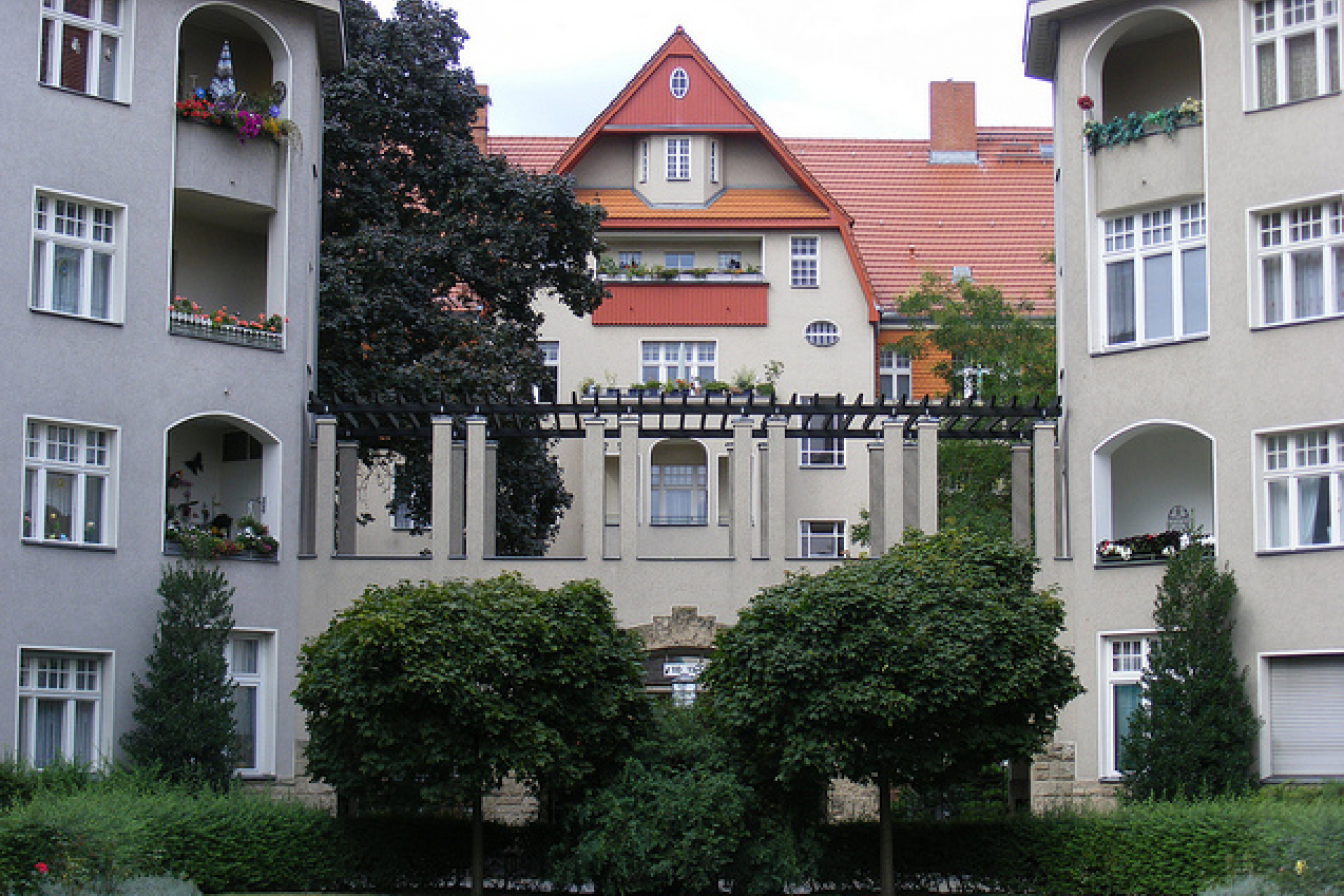Support migrant centric journalism today and donate

 • Watch This Video
• Watch This VideoGerman Chancellor Angela Merkel hosted a national immigration summit on 12 July 2007 about integrating Germany's immigrants. At the same time, the country is debating the question of trying to attract more foreign workers.
 Prior to Germany's second summit on the topic, German Economy Minister Michael Glos said that the "question of controlled immigration for skilled workers must be put on the political agenda." The sentiment expressed the widening acknowledgement in Germany that fundamental immigration reform issues can no longer be ignored.
Prior to Germany's second summit on the topic, German Economy Minister Michael Glos said that the "question of controlled immigration for skilled workers must be put on the political agenda." The sentiment expressed the widening acknowledgement in Germany that fundamental immigration reform issues can no longer be ignored.
However, there is very heated debate on all sides as to which directions and what forms the changes should take.
Current conditions
Germany is known for tight immigration laws, and the topic of immigrant labor is controversial in the country known for its shortage of skilled labor and high unemployment. There is relatively little debate over the need for immigrant labor; the real question is more about what can be done to improve the labor market integration of immigrants into German society.
The Organization for Economic Cooperation and Development (OECD) says that immigrants and their families face discrimination in the German job market, particularly for those who are highly educated.
The OECD also said that Germany ranked very poorly in educating and training immigrants, as well as saying that employers "need to have the necessary information and incentives to assess the skills and qualifications of immigrants properly."
"People of foreign origin have a much more difficult time finding an appropriate job in the German labor market than people who do not have that background," the report said.
"This is often due to a lower educational level among immigrants. But even with the same educational level, immigrants and their children do much poorer than the rest of the population."
A migrant who is not a European Union citizen wishing to work in Germany must be able to prove that they have an annual salary of €85,000, a wage level that approximately 90% or more of Germans don't meet.
One perspective on a reform option, such as expressed by Education Minister Annette Schavan, is to lower the threshold to €60,000 or even €40,000. German companies such as Siemens agree, saying that they face recruitment difficulties among native workers.
According to the German Research Foundation (DFG), the country has 20,000 vacant engineer jobs and 70,000 unfilled research positions. "Germany is badly placed in the international competition for brain power," said Holger Hinte, a specialist with labor market research group Iza.
A recent poll said that 52% of Germans oppose lowering the income threshold allowed for immigration, with the main objection being the high unemployment rate.
Changes
The focus for current reform efforts is on integrating, with many politicians referring to Germany as a "country of integration," rather than a "country of immigration."
There have been some efforts in making immigration to Germany less of a burden for some, such as a recent adoption of an EU directive to make it easier for scientific researchers to get work permits in Germany.
Schavan was happy with Germany signing the EU directive, saying upon its adoption that it would "lessen considerably the bureaucratic requirements that individual researchers need for residency and employment permission in Germany and the European Union."
"Germany and Europe will, through this, clearly profit from becoming attractive for foreign scientists," she said back in April.
However, little has come of the directive and Germany is still struggling with skilled labor shortages.
The social-democratic SPD party, part of the coalition government with the conservative party, wants greater emphasis placed on integrating unemployed Germans in the labor market and increasing opportunities for women and the elderly. They also want increased spending on employee training.
The party also voted 'no' to recent reforms to immigration rules that passed parliament, including making immigration to the country easier for investors. The previous required investment of €1,000,000 was reduced to €500,000 and the required number of new jobs to be created by this method reduced from 10 to 5.
On the Wednesday before the summit, the German government approved a package of 150 measures to bring immigrant communities "into mainstream German society," including an expansion of cut-price German-language courses. The length of time that each immigrant can attend such a course was also increased by 50%.
Private language schools and non-profit organizations must also provide baby-sitting services for mothers while they learn German, and there will be extra grants to train the illiterate and difficult-to-educate teenagers.
Those who refuse to take the courses can be fined by up to €1,000, or see their benefits trimmed.
Under the Right of Residence policy, foreigners have greater legal protections and better opportunities on the labor market.
From 01 July 2007, asylum seekers who previously have been under "tolerated" status will qualify for legal residency. The catches are that they are a family and have been in Germany for six years, or eight years if as an individual. In addition, other preconditions are sufficient knowledge of German, no criminal convictions and economic independence.
To remain in Germany, people under this provision must find employment by the end of 2009.
 The law also eliminates a provision requiring that jobs be given to EU citizens living in Germany before they can be given to legal immigrants. It is estimated that only a small percent of the 180,000 "tolerated" foreigners living in Germany will benefit from the new regulation.
The law also eliminates a provision requiring that jobs be given to EU citizens living in Germany before they can be given to legal immigrants. It is estimated that only a small percent of the 180,000 "tolerated" foreigners living in Germany will benefit from the new regulation.
After the summit
Chancellor Angela Merkel praised the second integration summit in Berlin, characterizing it as "a milestone in integration policy" aimed at improving the daily lives of Germany's 15 million people who are either immigrants or have an immigrant background. It was attended by some 90 participants. The first summit was held last July, with another planned for 2008.
Germany has a population of approximately 82.5 million, with 7.5 million foreign-born residents, according to official figures.
The German government has committed itself to spending €750 million annually for "integration specific measures," according to Integration Commissioner and State Secretary Maria Böehmer.
A focal point of attention will be on women, teenage and children migrants.
The integration plans are intended to be reviewed in fall 2008 for signs of progress, according to Merkel.
As part of the new national integration plan, state, business and communal representatives have adopted 400 self-commitments.
Brigitte Zypries, Germany's Justice Minister, said a survey showed there were far too few minority trainees in public services.
"A survey in 2005 of trainees in the public services found only 2.1% were foreign young people, compared with 24% in job training overall," she said. The public services "clearly" told the summit they would try to improve this.
The cabinet also set a target of creating an additional 10,000 jobs for people of foreign origin by 2010.
Turkish boycott
The summit was marred by four major Turkish groups, representing some 2.5 million Turks in Germany, who protested by boycotting the summit.
In addition to raising the minimum age for foreign spouses to 18, the new German regulations require a basic knowledge of the German language before they may enter the country. The stated aim is to combat forced marriages believed to be widespread among Germany's Turkish community.
The new rules, passed by Parliament the previous week, force foreigners to prove that their spouses know 200 to 300 words of German before allowing the spouses to move into the country.
If there is suspicion of a fake marriage, officials can also refuse entry into Germany. Critics, however, point out that laws should be adapted to make it easier for women to flee violent husbands. A spouse who joins a partner in Germany can only get his or her independent residence permit after two years.
The sticking point is that Japanese citizens, Americans, New Zealanders, Australians and EU citizens, for examples, are exempted from the language requirement. Some very heated rhetoric from the Turkish side paints the regulations as racist and specifically directed at the Turkish community.
A huge majority of immigrants and descendents of immigrants are of Turkish origin, and there have historically been cultural clashes between these communities and the German people.
Rather than attend the summit and attempt to participate, the organizations chose a tactic seen more as an attempt to sabotage the working politics of the German government. The influential head of the Turkish community in Germany, Kenan Kolat, implied that a lawsuit in the German constitutional court, if the German president signs the new immigration law, may well be an upcoming action.
According to Kolat, "With this document, prejudices are written into law. That is what really annoys us and makes us angry."
While the accusations might indeed have some merit, Chancellor Merkel served up a particularly caustic opinion in the wake of the summit: "No one sets an ultimatum for the federal (German) government."
An alternate translation, "The German government does not respond to ultimatums," leaves little room for interpretation.





















